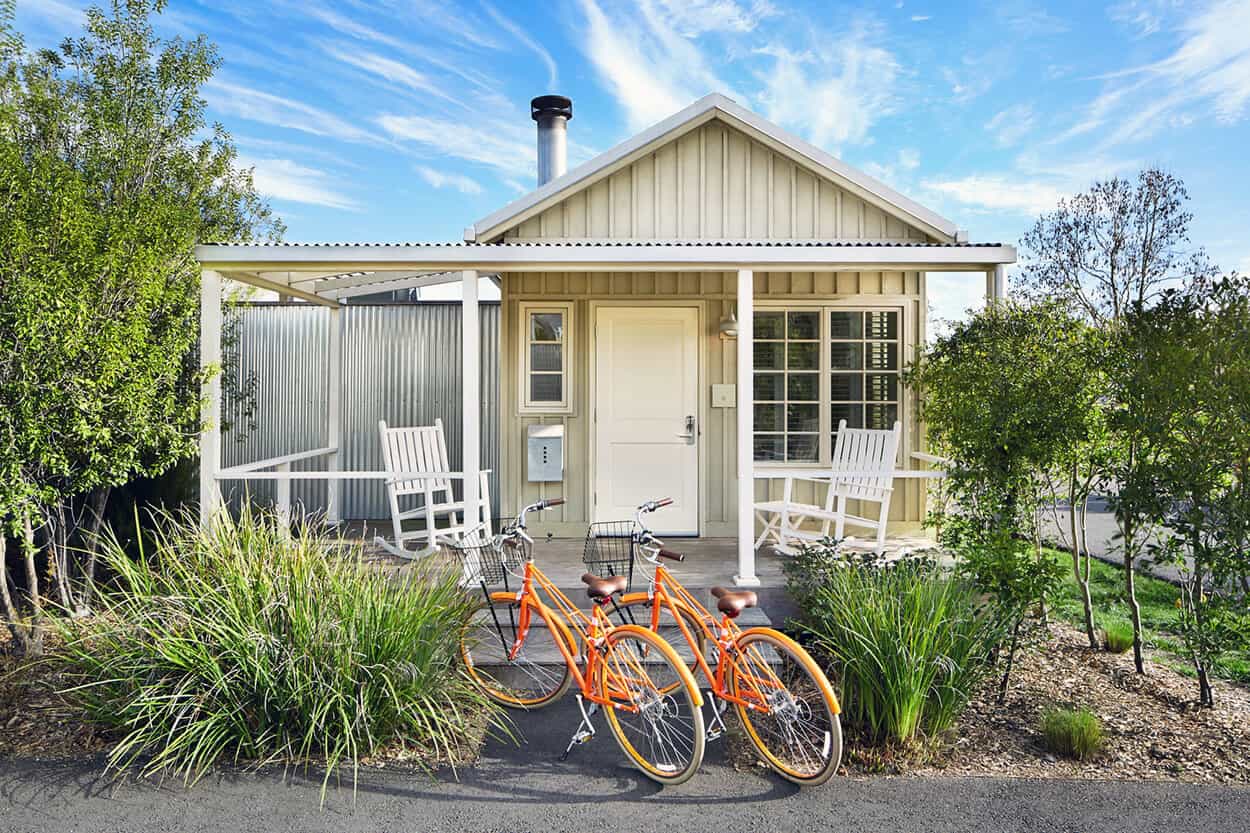Tiny Houses, Big Impact
September 4th 2020 | Categories: Financial Planning |

The ‘Tiny Homes’ trend has taken the world by storm over recent years. Whilst it may not be a brand new concept (people have been living in cabins, granny flats and caravans for decades now), these miniature designer homes have become extremely popular, challenging architects, designers, builders and even investors in new ways.
In this article, we explore this small, but large trend; what are tiny homes, why people are downsizing, and how investors are incorporating tiny homes into their financial plan.
Considering a tiny home as part of your financial plan? Chat through the idea with an adviser.
[ninja_form id=37]
What are tiny homes?
Tiny homes are just that; a miniature version of a home. Some are homes made out of repurposed shipping containers, others are built from scratch on a permanent base and others are built on a relocatable base.
Often these homes are similar to a small studio apartment with just the basics; one ‘bedroom’ or loft, a bathroom, small kitchen and dining, and living space. Some are built to suit families with space for bunk beds or a double loft for a kid’s bedroom.
Why are we downsizing?
Many people are downsizing and adopting the ‘tiny home’ way of life for a number of reasons:
Lifestyle flexibility
Downsizing to a tiny home can create a lifestyle of flexibility. Most tiny houses are built to be easily relocated and with the increasing amount of people now able to work from home, tiny homes are a great option for people who want a more nomadic lifestyle.
A chance to declutter
As experiences are increasing in popularity over possessions, living in a tiny home is a great opportunity to declutter and live a more minimalistic lifestyle. These trends are being more widely adopted with thanks to the influences of Marie Kondo, encouraging us to ‘live a life that sparks joy’ by simplifying how we live.
Reducing our impact on the environment
One of the main reasons people are choosing to downsize is to reduce their carbon footprint. Often, tiny homes are built to be self-contained and self-sustaining utilising solar power. According to godownsize.com, tiny homes use on average 7% of energy compared to traditional homes.
Affordability
Not only are tiny homes usually a lot cheaper to purchase or build than traditional homes, but with limited space in size, you’ll also save on expenses like utilities and possessions. You will still have to factor in land and associated fees, but again these are generally only a fraction of that of traditional homes.
Tiny homes as an investment
Not only are many people turning to tiny homes to live in for lifestyle reasons, but many are also identifying the investment opportunities that can arise from small living.
Here are a few ways that you could use a tiny home as an investment and incorporate it into your financial plan:
- If you own a home with extra land space, you could live in a tiny home and rent out the main house.
- You could also live in a tiny home on your property while you renovate the main residence, rather than rent elsewhere. You would have the tiny home as an investment to rent out once renovations are finished.
- You could rent out a tiny home as a granny flat or as an Airbnb. It also doubles as a great spare space for visiting friends and family.
If you do decide that a tiny home might be a good option to suit your lifestyle needs or as an investment option for you, get in touch with a financial planner to make sure it’s the best option for your financial future.
If you would like to discuss your lending of refinancing options for financing the purchase or build of a tiny home, the Lending Team at Invest Blue are here to help!
Book your complimentary initial consultation with one of our advisers today.
[ninja_form id=41]
What you need to know
This information is provided by Invest Blue Pty Ltd (ABN 91 100 874 744). The information contained in this article is of general nature only and does not take into account the objectives, financial situation or needs of any particular person. Therefore, before making any decision, you should consider the appropriateness of the advice with regards to those matters and seek personal financial, tax and/or legal advice prior to acting on this information. Read our Financial Services Guide for information about our services, including the fees and other benefits that AMP companies and their representatives may receive in relations to products and services provided to you.
Posted in Financial Planning
